Literary Agents
By Lakshmi Raj Sharma
Novelist and Professor of English
firstwriter.com – Wednesday December 28, 2022
Literary agents and their meticulous work fascinate me. I presume several other authors feel the same about them. Perhaps agents are equally immersed in and captivated by the publishing process. Theirs is most definitely a labor of love. Agents have to be fervent about good ideas, unstoppable at the bargaining table, shrewd in judgment and advice, and brilliant at editing. There's no doubt that we authors need literary agents in the contemporary publishing scenario. Without them we are like fishes out of water. They know things that authors do not. They, therefore, bridge the gap between publishers and them, and, in some cases, become protectors. Authors feel insecure in their professional worlds without supportive agents. Of course not all agents are the same. Some who fall into the wrong profession can become the cause of authors dwindling into nothing.
I propose to hold the mirror up to agents and do for them what they have very kindly been doing for authors. Fully realizing the complexity of their job, I will try to suggest how agents might help authors even better. I believe I can do this because the work of literary agents lures me and I read with interest virtually everything related to them. What I say here will include some of the problems faced by authors living in countries like India. Living in such countries and writing to the world at large is no easy task because of confusions that arise because authors and agents belong to different cultures.
As a first step, I would suggest that agencies be at least as caring as agencies like Bookends Literary Agency are. My work has been rejected by an agent of this agency but I do find a world of difference between most agencies and this one. An example of what I say can be seen in the video on their website. See how pleasantly and carefully they inform authors about ten things they and other agents need: https://bookendsliterary.com/
They take pains to describe what basics like voice, plot, characters, writing, market, etc., actually mean. We all know what these are. But an agent can better describe what the author is expected to know from the publisher's point of view. They attempt to clear misconceptions on issues that are vitally important for authors. They go to the extent of pointing out that a sub-genre that was recently popular could have gone out of fashion and would be difficult to publish. Authors need to know such small details. Besides, this agency seems to realize how hard authors work to complete their books and the encouragement they need.
Then, an agent such as Ayla Zuraw-Friedland, of Goldin Literary agency, has the vision and wisdom not to cut her reading choices so fine that she loses out a number of authors she may have liked had she not done that. Some agents limit their authors by specifying in minute detail what they are looking for, sometimes by mentioning books that contain those details. This means that authors have to force themselves to fit into categories that do not come naturally to them if they want to get the help of the agents they value. The concept of "best fit" can be ill conceived. I think that an agent should cast a wider net and be broader in their wish lists rather than asking authors to narrow down their talent only because that gives the agent some convenience. The marriage of author and agent should indeed not be for convenience alone.
I know that practicality demands that agents cater to authors living around them. A Canadian or Australian agent, for instance, may normally not encourage authors in South Asia to query them. But the love of books should help them to go beyond boundaries of nationality and race, and dig out the best talents from across the globe. An agent such as Nicole Aragi, based in the US, never limits herself to American authors and therefore is a class apart. I highly regard agents like Kristina Perez of the Zeno Literary Agency because of the varied experiences they have had only because of the fact that they've lived in so many countries. They have the added advantage of appreciating authors of several cultures.
I marvel at the late Jill Kneerim who could help turn a scholarly book of literary criticism into such a commercial success. I have the books of academics like Stephen Greenblatt in mind. I am certain there are other gems like Greenblatt; those that need to be discovered. An agent should try to discover authors lying unseen somewhere rather than put to naught authors trying to get discovered. Thomas Gray's lines come to mind:
Full many a gem of purest ray serene,
The dark unfathom'd caves of ocean bear:
Full many a flow'r is born to blush unseen,
And waste its sweetness on the desert air.
Whereas most agents virtually shun literary criticism (they prefer to handle cultural criticism) Kneerim could find the right channels to make literary criticism a bestselling category. That, I think, is a great literary agent.
A number of agents seem to pride themselves on the fact that they accept only an infinitesimal number of authors. For instance some say that they get about a thousand submissions annually and accept no more than two or three of them. They do this because they can serve a few better. They may be right but they shouldn't state statistics that can stifle authors. I don't know how they can make a virtue of such claims. It is something like God saying that He listens to no more than 2 or 3 of the 1000 people that come and pray to Him, even if He actually does that. An agent should be like a publishing editor only in a limited way (in the sieving-out process). They should strive to help many more authors to find homes for their books and if they can't do that they should not make authors feel hopeless. The rationale behind the squeamishness probably is that publishers are very choosy. Publishers are somewhat justified but agents are not in allowing success to such a small number. They should not dampen authors; they should rather guide them in how to do better.
When an author's work is reduced to a commodity like a tooth brush or boot polish that needs to be bought and sold in the market, something is not quite right in society. Things manufactured mechanically and those created by the should not be treated at par. An agent can play a little role in stopping that from happening. Art and scholarship should be given a little more respect than items of utility. Agents who understand this seem angelic to authors.
About the Author
I am a professor of English at the University of Allahabad. My magical realist murder mystery, THE TAILOR'S NEEDLE, was first published in Great Britain by Picnic Publishing and then by Penguin Books India in 2012. My first story collection, MARRIAGES ARE MADE IN INDIA, was published by Publerati (USA) in 2012 while my second story collection, INTRIGUING WOMEN, is published in London in Feb. 2016 under the White Glove Scheme. I have published several short stories in American journals and papers. Another fiction book, the novella, SABA & NISHA: A LOVE STORY, has been published in Sept. 2017. I published it as a giveaway for my books. My almost completed novel, WE SHOULD NOT ALL BE FEMINISTS will be my latest book of fiction.
I have published a number of academic books the chief of which is THE T S ELIOT-MIDDLETON MURRY DEBATE (1994). Among my best published articles are "Charles Dickens and Me" (published in the Oxford journal, English) and one on Thomas Hardy's poetry, published in The Hardy Society Journal (UK).




 Seven essential points on literary agents
Seven essential points on literary agents Finding good literary agents
Finding good literary agents Literary agents share the magic ingredients they’re looking for in a novel
Literary agents share the magic ingredients they’re looking for in a novel How To Write A Query Letter That Makes Literary Agents Take Notice
How To Write A Query Letter That Makes Literary Agents Take Notice The sure-fire way to getting your book published, according to one of UK’s top literary agents
The sure-fire way to getting your book published, according to one of UK’s top literary agents At the start of this year, I could barely sell my writing. These 10 online classes, books, and podcasts helped me get published in The New York Times and land 2 literary agents.
At the start of this year, I could barely sell my writing. These 10 online classes, books, and podcasts helped me get published in The New York Times and land 2 literary agents. Literary Agents - Unfit For Purpose?
Literary Agents - Unfit For Purpose? My Novel Was Rejected By 41 Literary Agents Before Becoming a Bestseller. Here are 8 Truths About Perseverance I Want Everyone With a Big Dream to Know
My Novel Was Rejected By 41 Literary Agents Before Becoming a Bestseller. Here are 8 Truths About Perseverance I Want Everyone With a Big Dream to Know How I got a literary agent - An interview with author James R. Larson
How I got a literary agent - An interview with author James R. Larson How I got a literary agent - An interview with author Adrienne Schwartz
How I got a literary agent - An interview with author Adrienne Schwartz How I got a literary agent - An interview with author, Charles Heaton Allen
How I got a literary agent - An interview with author, Charles Heaton Allen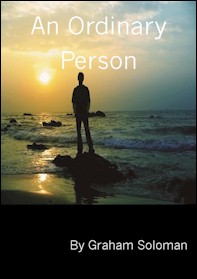 How I got a literary agent - An interview with author, Graham Soloman
How I got a literary agent - An interview with author, Graham Soloman How I got a literary agent - An interview with author, Eric Houghton
How I got a literary agent - An interview with author, Eric Houghton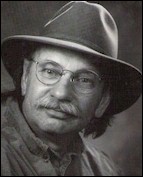 How I got a literary agent - An interview with author David C. Burton
How I got a literary agent - An interview with author David C. Burton How I got a literary agent - An interview with author, Robert W. Morgan
How I got a literary agent - An interview with author, Robert W. Morgan New Literary Agent Listing: Des Salazar
New Literary Agent Listing: Des Salazar Dynamic Duo Elena Giovinazzo and Jason Reynolds Launch Groundbreaking Literary Agency to Revolutionize Publishing
Dynamic Duo Elena Giovinazzo and Jason Reynolds Launch Groundbreaking Literary Agency to Revolutionize Publishing ‘We’re losing talent’: authors call on Government to fund writing centre in North
‘We’re losing talent’: authors call on Government to fund writing centre in North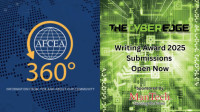 Cyber Edge Writing Award Welcomes Submissions for 2025 Contest
Cyber Edge Writing Award Welcomes Submissions for 2025 Contest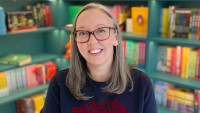 So hot right now: literary agents going out on their own
So hot right now: literary agents going out on their own New Literary Agency Listing: DunnFogg
New Literary Agency Listing: DunnFogg 'New romance,' a growing literary genre and gold mine for publishers
'New romance,' a growing literary genre and gold mine for publishers Akoya Publishing launches with slate of 10 books for 2026
Akoya Publishing launches with slate of 10 books for 2026 AAP StatShot: US Industry Was up 18.1 Percent for Month of July
AAP StatShot: US Industry Was up 18.1 Percent for Month of July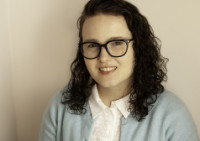 New Literary Agent Listing: Isabel Lineberry
New Literary Agent Listing: Isabel Lineberry Watson, Little appoints Gabrielle Demblon as foreign rights manager and literary agent
Watson, Little appoints Gabrielle Demblon as foreign rights manager and literary agent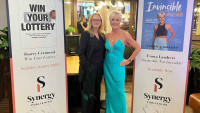 Mother and son Suzi Wooldridge and Cameron Toman launch Synergy Publishing
Mother and son Suzi Wooldridge and Cameron Toman launch Synergy Publishing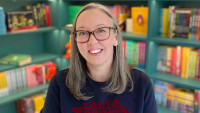 The Bent Agency's Gemma Cooper launches Gemma Cooper Literary
The Bent Agency's Gemma Cooper launches Gemma Cooper Literary Les Nouveaux Editeurs announces creation of first publishing house
Les Nouveaux Editeurs announces creation of first publishing house BBC 500 Words creative writing competition returns for children across the UK
BBC 500 Words creative writing competition returns for children across the UK
